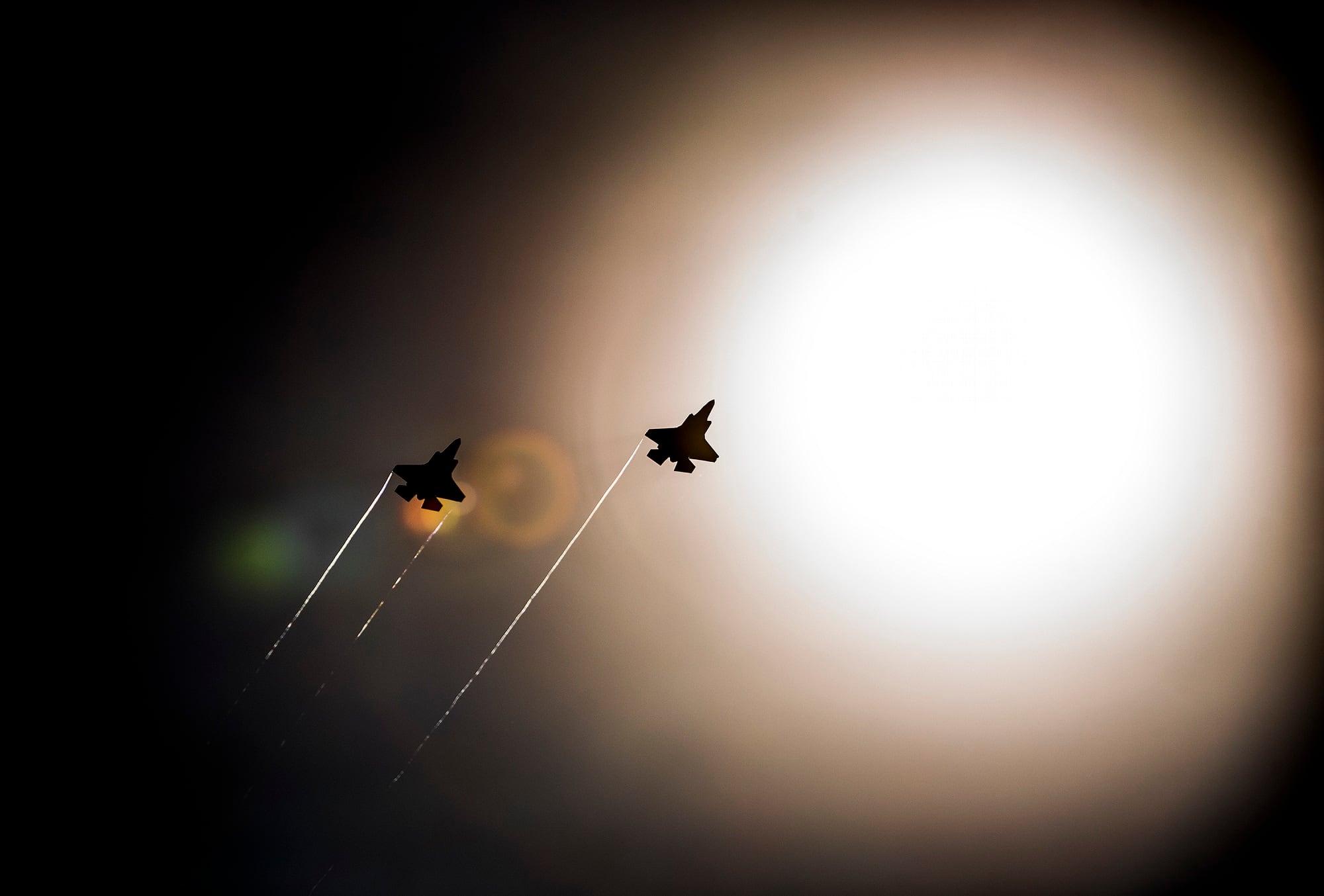This week, I have traveled to the United Kingdom, along with colleagues from the White House and the U.S. departments of State, Commerce and Defense, as the official U.S. delegation attending the Farnborough International Airshow, one of the world’s largest international defense and aerospace exhibitions. This year’s show will highlight the 100th anniversary of the British Royal Air Force, as well as the 100th anniversary of the end of World War I, a particularly relevant opportunity for government and industry leaders to come together and further advance the many partnerships that have flourished over the last 100 years.
As we make our way through the exhibition halls and talk with industry stakeholders and foreign counterparts, our message is clear and resounding: The United States is more committed than ever to remaining the security partner of choice for our many friends and allies, and the administration is making good on this pledge by working vigorously to improve how the U.S. government manages sales and transfers of U.S. defense equipment.
In April, the president issued a new Conventional Arms Transfer, or CAT, policy designed to bolster the arms transfer process, and he approved a new policy governing the international sale, transfer and subsequent use of U.S.-origin military and civil unmanned aerial systems. Both policies reflect this administration’s conviction that economic security constitutes an integral part of national security, while maintaining a policy that also balances our other national security interests, including nonproliferation and human rights.
Click here for more from the 2018 Farnborough Airshow!
The new CAT policy has provided cohesive direction to all elements of the U.S. government to support America’s defense industry, which, according to the latest figures from industry trade groups, employs over 2.4 million people across our nation.

It is well-known that the United States has long been the world’s leading exporter of defense equipment, but it is less well-understood that defense trade is an essential tool of American diplomacy. The United States is stronger and safer when our allies and partners realize improved interoperability with our forces by operating common platforms of American-made defense equipment. A vibrant defense technology sector increases our ability to produce, sustain and innovate, thereby keeping the United States, our partners and our allies equipped to meet global security challenges.
In this vein, it is worth considering that in fiscal 2017 alone, the U.S. Department of State’s Bureau of Political-Military Affairs authorized and provided oversight for $42 billion in government-to-government sales and $112 billion in direct commercial sales by U.S. defense manufacturers.
All this is of course mutually beneficial to our overseas partners, who receive essential U.S. defense capabilities and in so doing add immeasurably to their own security.
Even as we build on decades of robust defense cooperation to meet the complex security challenges of the 21st century, our collective defense demands greater and more equitable burden-sharing. By assisting allies and partners to pursue defense modernization, we can help countries divest from Russian legacy equipment and improve their resilience against malign Russian influence.
RELATED

Our robust presence at Farnborough underscores the intensified approach to advocacy and support that the president called for in the new CAT policy. As part of that approach, the U.S. government will continue to advance its advocacy for U.S. industry in overseas competitions.
We are considering how to make our systems more affordable for international customers, including through more flexible financing options. We will also explore ways to address offset practices that can disadvantage our companies, and we will work with industry to increase defense systems’ exportability.
Our diplomats have consistently worked to ensure that U.S. products and services have the best possible leg up in competing abroad. The administration’s new defense trade-focused initiatives build upon this long-standing tradition of economic diplomacy in service of our national interest. U.S. companies produce the most sophisticated and effective defense systems in the world. Thanks to the leadership of our administration, there will be no more active advocate for U.S. sales than the U.S. government itself.
Ambassador Tina Kaidanow is the principal deputy assistant secretary of the Bureau of Political-Military Affairs at the U.S. State Department.






